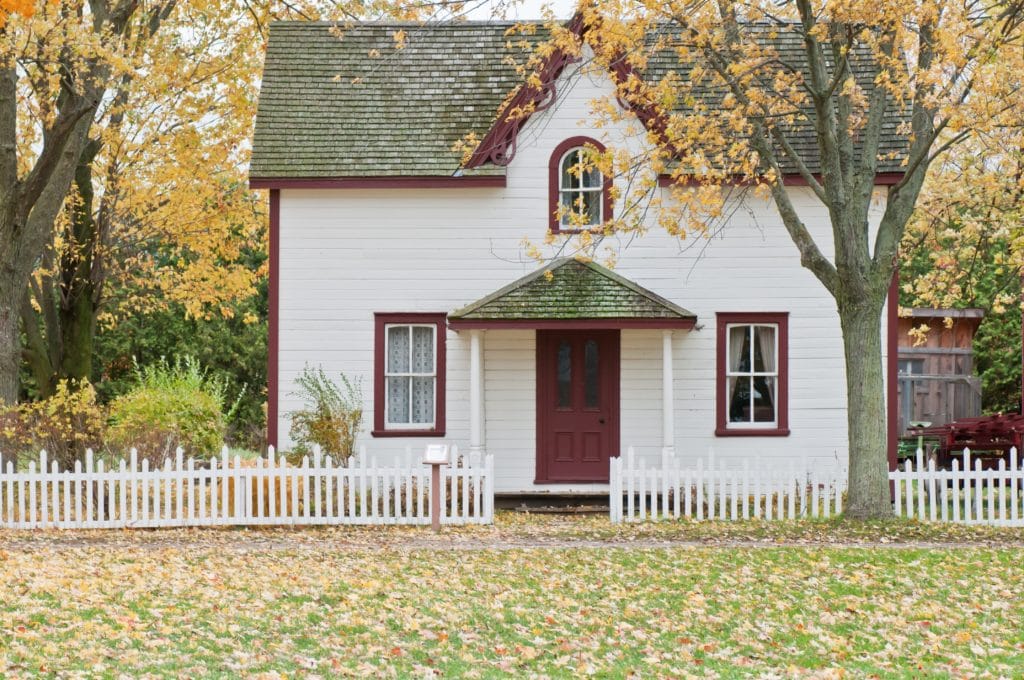Whether you’re moving to a new area or hoping to have a permanent residence where you currently live, buying your first home is a big deal. In fact, it’s one of the biggest investments most people will make in their lives.
There is no one-size-fits-all guide to buying a home. The most important considerations can differ based on where you’re moving. No matter what, you’ll want to focus on building a strong budget before investing in your new home.
The following guide will help you better understand what to expect when purchasing your first home. You’ll find fundamental tips that are applicable anywhere, along with country-specific information for the United States, Australia, and the U.K.

5 Tips for Buying Your First Home
Regardless of where you’re purchasing real estate, a few guidelines apply globally.
1. Start saving.
Even if you get a great mortgage that allows you to pay off a home over time, there are still upfront costs you’ll have to cover. This is why you should start saving early.
These are the biggest costs you’re likely to incur when purchasing your first home:
- Down Payment (Deposit): You will need to make a down payment (i.e., deposit) when buying a home if you’re unable to pay the full amount at once.
- Closing Costs: Home inspections, mortgage finalization, and other fees are requirements prior to closing a sale on a new home.
- Move-In Expenses: Upgrades, repairs, moving companies, and furnishings are just a few costs.
2. Pay down debt and build an emergency fund.
Most people can only purchase real estate by taking out a loan. This means your credit will play a major role when buying your first home. Paying down as much of your debt as possible will help build your credit and reduce the number of bills you have to worry about.
This is also why it’s important to build an emergency fund. Whether or not you own a home, unexpected bills happen. Aim to save up three to six months’ worth of expenses before you dive into buying your first home.
3. Decide how much you can pay now.
The money you initially invest when buying your first home will play a big part in the properties available to you. Your current debt, income, credit score, down payment, and desired location all affect this. Use the following calculators to decide how much you can afford:
You can get pre-approved for a loan before deciding on a mortgage—as discussed below. This will help you look for homes within your price range and choose which open houses to attend based on your criteria.
4. Find out how much you can borrow.
You’ll also need to understand how much you can borrow when buying your first home. Most people don’t have enough money saved to purchase the property outright. This is especially the case for individuals with other obligations, like sending money back home to take care of the loved ones.
The amount you can borrow from a lender will vary. Shop around when looking for a mortgage. And if you want to increase the amount you can borrow or improve the rate lenders offer, take time to improve your credit or establish credit in a new country before starting this process.
5. Consider these additional factors for a smoother buying process.
There are a few other things to consider when buying a home. Some lenders may require you to take these steps, but in other cases, doing so is a good common sense and is helpful for your home-buying process:
- Hire a real estate agent: Using a real estate agent is rarely a requirement to buying a home. However, they can often find exactly what you’re looking for, negotiate a better price, and save your time looking at houses on your own.
- Get a preapproval letter: Lenders can offer preapproval letters showing the mortgage they plan on offering you. Having this in hand shows both sellers and real estate agents that you’re serious about buying.
- Attend the inspection: Going along with the inspector allows you to understand issues in a home better.
- Get home insurance: In nearly every situation, you’re required to purchase home insurance. This will cover costs related to certain damages and even protect you legally if you’re held liable for certain accidents.

Buying Your First Home in America
First-time homebuyers in America have several advantages. Lenders often expect people to have a down payment of 20% in the U.S., but there are programs to reduce this cost for individuals buying their first home.
You should also look at the information provided on the Department of Housing and Urban Development (HUD) website. They provide a list of your rights regarding fair housing, your rights as a borrower, how to avoid predatory lending, and more. The federal government wants to help new homeowners, so there are countless resources available through HUD.
Buying Your First Home in Australia
The federal government of Australia also offers incentives if you’re buying your first home.
The First Home Owner Grant is a national plan, but it’s administered and funded by territories and states. If you meet the eligibility requirements—which vary by locale—you can receive a one-off grant to help cover the cost of your first home.
The First Home Loan Deposit Scheme (FHDLS) is another national initiative geared toward helping first-time homebuyers. Even if you don’t meet eligibility requirements for the First Home Owner Grant, the FHDLS can greatly reduce the required down payment to purchase your first home.
The program could reduce your deposit to 5% of the total cost.

Buying Your First Home in the U.K.
First-time homebuyers in the U.K. also have various national programs to assist them.
The Help to Buy program is one of the most popular options. This allows you to purchase between 25% and 75% of a home and then pay rent on the remaining part. You can even make this purchase with a deposit of as little as 5% of the overall price.
The Right to Acquire and Right to Buy programs allow tenants to purchase the properties they’re currently living in. This eases the transition of going from a renter to a homeowner, and you’ll also get the property at a discounted price. There are certain requirements that you must meet—such as renting from the public sector—but these programs are helpful when buying your first home.
The Money Advice Service from the U.K. government provides much more information on these programs and others available to first-time homebuyers in the United Kingdom.

The Bottom Line
While purchasing a home is much more involved than renting, it doesn’t have to be a major inconvenience. There’s plenty of government help available for first-time homebuyers. And if you have difficulty understanding these programs, a real estate agent can help you with the process.
About Remitly
Remitly is on a mission to make international money transfers faster, easier, more transparent, and more affordable. Since 2011, millions of people have used Remitly to send money with peace of mind.
Visit the homepage, download our app, or check out our Help Center to get started.